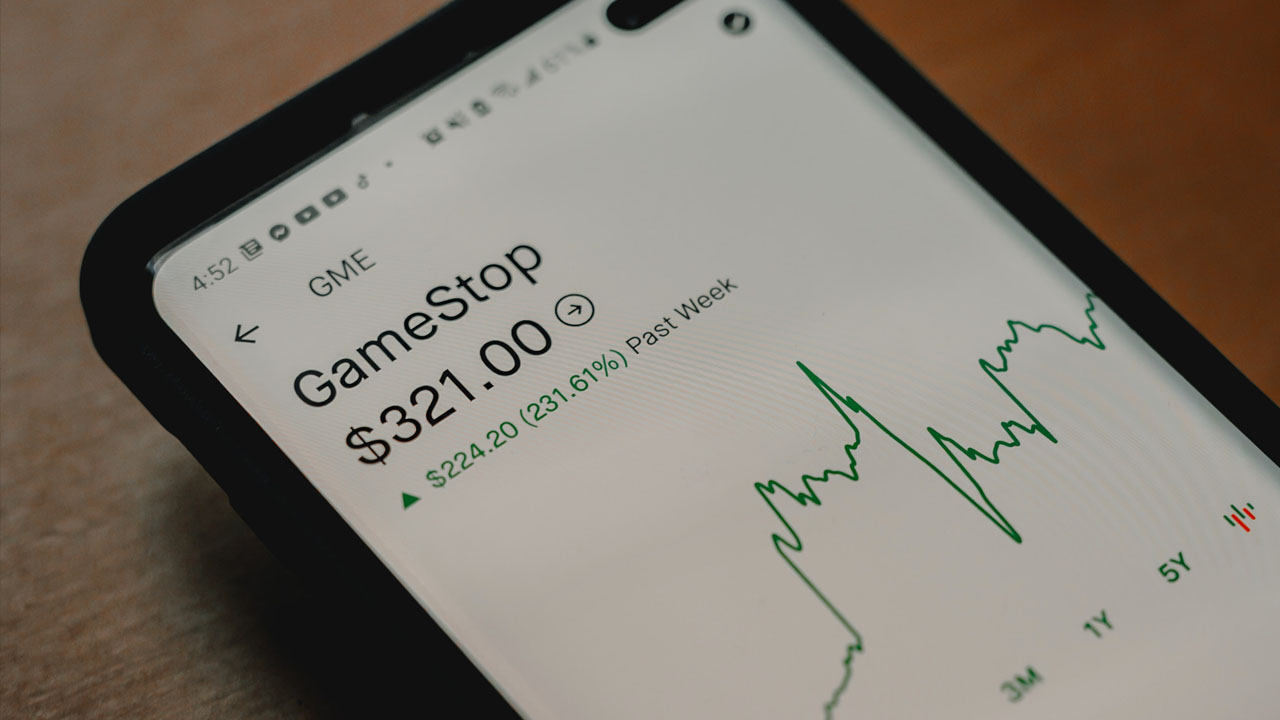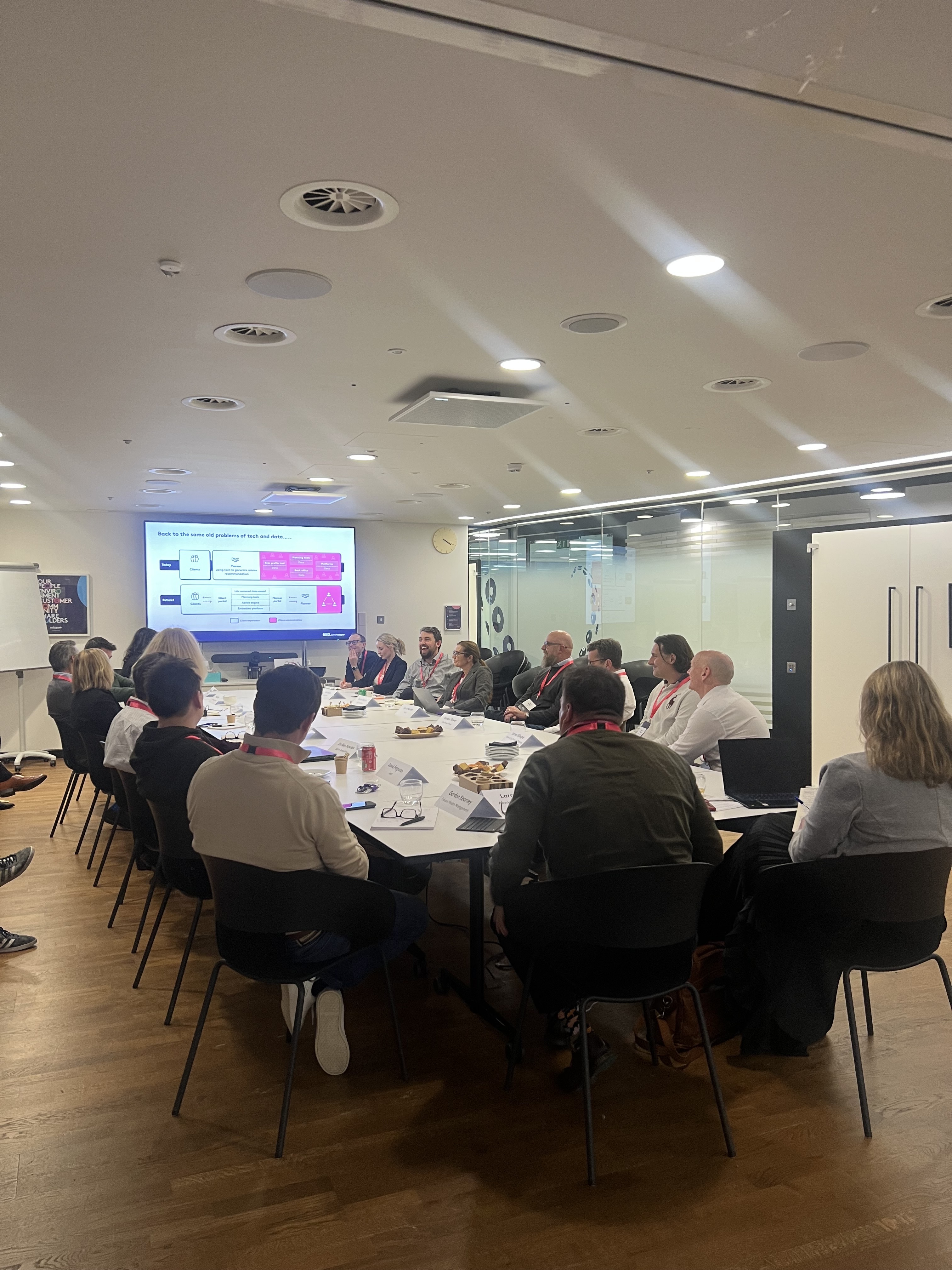Like many, the team at Seccl has been watching the Reddit/Robinhood related events of the last week or so pretty intently.
Broadening access to the worlds of investing and financial advice is something that we’re all massively passionate about, so, as you can imagine, it caused a fair bit of internal chatter within the company.
One of my colleagues, Ben, was particularly vocal, and we ended up having a long chat about behavioural economics and financial literacy – you know, typical ‘how was your weekend’ watercooler stuff.
Anyway, now the dust has settled a bit, I thought I’d jot down our combined thoughts on how we got to where we are – and where we go from here…

Power to the people
It’s hard not to be impressed by the recent wave of grass-roots investor enthusiasm, not to mention the awesome level of impact it can have on the markets.
To see everyday investors using technology to gang up on hedge funds is to see digital democracy in action – and there’s a big part of me that’s cheering from the side-lines.
“Seeing investors gang up on hedge funds is to see digital democracy in action”
After all, on the face of it, it would appear to be the perfect embodiment of Robinhood’s laudable mission statement: to “democratize finance for all”.
“We believe that everyone should have access to the financial markets, so we’ve built Robinhood from the ground up to make investing friendly, approachable, and understandable for newcomers and experts alike.”
What’s not to like? Seen through this lens, recent events are a cause for celebration: a reflection of the fact that more and more of us have access to an activity that was previously the preserve of the elite.
But while there might be plenty of euphoria and excitement today, we all know how quickly this can (and no doubt will) turn – and that a whole lot of ordinary people will likely lose their hard-earned money.
And it all stems from the way Robinhood, and apps like it, are conceived.
The toothbrush test
Like all consumer-facing apps, Robinhood and other modern trading platforms live or die by their daily active users (DAU).
As a proxy for understanding customer engagement, it’s a metric that investors will pore over and put enormous pressure on young app-based services to grow.
Google’s Larry Page, for instance, requires all would-be acquisitions to pass the “toothbrush test”: "is it something you will use once or twice a day?”

It makes perfect sense in a world of free-to-use, ad revenue-hungry social media platforms. It’s not enough to get a heap of free downloads. You need to get your users returning hour after hour to actively engage – and make sure they stay long enough for you to cross-sell other services or advertising.
And because survival depends on it, soon your company’s entire culture and decision-making will gravitate around that one metric.
Everything you do will be aimed at getting your users wanting more – leading to the clever gamification of apps using nudge theory, along with undeniably awesome in-app experiences that give users a nice, warm and fuzzy hit of dopamine.
To put it another way, your business model rests on getting your users hooked.
Gamified trading… sounds a bit like gambling?
It’s one thing to encourage addictive scrolling as a means to build advertising revenue. Albeit not necessarily a very nice thing.
But when you transplant this same DAU-driven approach into the public markets, you get a striking conflict of interest – and start to risk badly hurting someone’s finances, as well as their mental wellbeing.
It’s been well known for some time that Robinhood is paid on the orders it routes for execution. In fact, it looks to have made over $600 million over the course of 2020 in so-called ‘Payments for Order Flow’ (PFOF).
In other words, it has a direct financial interest in its users regularly placing trades – engaging in real-time trading practices that, when championed through r/WallStreetBets and 30 second TikTok videos, look worryingly similar to get-rich-quick schemes.

And while many might be smiling as they get one over on the hedge funds for now, their luck will inevitably turn. If you think that the retail investor will be the winner the majority of the time, then you (and they) are going to be sorely disappointed.
It all starts with education
As all financial advisers will rightly tell you, success in the long term is about time in the market, not timing the market – and that a far healthier strategy (both financially and mentally) is to invest and forget. Hold during the peaks, ride out the troughs and let time do its thing.
“The simple fact is that active daily usage is the very opposite of sound, stress-free investing”
Unfortunately, though, these easy-to-use trading apps have emerged against a backdrop of insufficient education and financial literacy.
The equivalent apps for financial education are still very much in their infancy – creating a vacuum in which dangerously compelling narratives of supreme wealth, rapidly gained, can all too easily build traction.
As Ben put it, “by giving people access to shares and complex instruments, we’ve given them a supercar to turbocharge their finances, without first giving them driving lessons.” A neat, if worrying, analogy…
It’s not all doom and gloom
For all the dangers, though, I do remain positive. Improving access to high quality financial advice is our reason for being here at Seccl – and the industry’s making great strides in this direction.
As technology makes the traditional advice process more efficient, I’m confident that more and more people, regardless of affluence, will be able access the goal-based financial planning that advisers are uniquely placed to deliver.
At the same time, we’re seeing a new generation of technology companies emerge that focus on education, wellbeing and financial planning first – and investing second.
Companies like Tumelo, which exists to “engage investors by giving a transparent view of the companies they own, and a shareholder voice on issues they care about”. They’re channelling the same desire for democracy in the markets, but without the downside risk of day-trading, and are a super exciting business: go check them out.
Closer to the Seccl stable, we’re really happy to be working with businesses like Penfold and Raindrop, who are helping everyday retail investors plan for their retirement – not get rich by their next pay cheque.
And there are plenty of innovative firms appearing to help bridge the advice and guidance gap, too.
The team over at Hatch are helping to put financial wellbeing at the heart of the employee benefit agenda, by working with companies to give each staff member their own financial coach.
Beanstalk is looking to use the efficiencies brought by technology to offer affordable, flat-fee advice to a younger audience.
And one of our own clients, Multiply, has become (as far as we’re aware) the first business to create a fully digital end-to-end advice proposition – allowing a new generation of app user to access regulated financial advice.
At the end of the day, for all the talk of ‘robo-advice’, the first wave of investing fintechs were all about pure-play investing rather than financial planning, which is where the real customer value lies.
“I’m convinced that the next generation of robo-advice platforms will contain more robo, and a lot more advice”
And, importantly, that advice won’t be "trade now to win a free T-shirt, so we can punt your data over to a hedge fund to front-run your orders”…
I think we can all be thankful for that.
But I’d love to hear what you think. Do you agree with me and Ben? Or have we missed the mark? Drop me a line at sam@seccl.tech – I always love chatting this stuff through.



